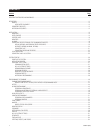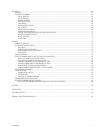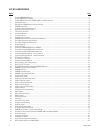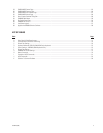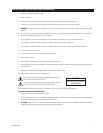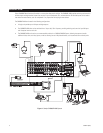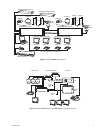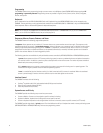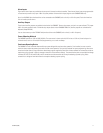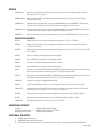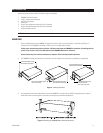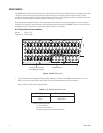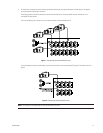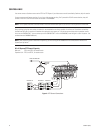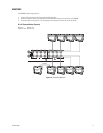
10 C1528M-F (6/05)
Programming
The CM6800E features easy programming through on-screen menus or the Windows
®
-based CM6800-MGR software package. All
programming is password-protected. Programming menus are provided in English, French, German, Italian, Polish, Portuguese,
Russian, and Spanish.
Keyboards
Up to 16 keyboards from the KBD100/200A/300A Series and 2 keyboards from the KBD960/KBR960 Series can be connected to the
CM6800E. Camera positioning can be programmed and controlled from the KBD200A/300A (in “6800 Mode” only) and KBD960/KBR960
Series keyboards. Refer to
Associated Equipment
for keyboard descriptions.
NOTE: You can program the CM6800 with the KBD200A/300A keyboard while in “CM6800 Mode” only (if you use “CM6800 ASCII
Mode,” you can control the CM6800 switcher, but you cannot program it).
Sequences, Macros, Presets, Patterns, and Zones
The CM6800E features the following programmed operations:
A sequence allows operators to see a routine of 72 camera views on any system monitor over and over again. The sequence can be
operated automatically or manually. A scratchpad sequence, allows an operator to run a sequence from an individual monitor without
entering the password-protected programming menus. A macro is a sequence of commands or steps. When a macro is run, the steps
programmed into that macro are performed. Macros can be operated automatically or manually. Automatic operation can be based on
specific times or dates. Macros can also be triggered by alarms.
The following operations are available only with positionable cameras controlled by KBD200A/KBD300A or KBD960/KBR960 keyboards:
A preset allows operators to direct a PTZ (camera positioning system) to move to a predetermined scene on keyboard command or
as a result of an alarm. In addition, a preset can place a descriptive title on the monitor screen. The number of presets available is
determined by the camera positioning system.
With a pattern operators can program a camera positioning system to move around its viewing area in a repeating pattern. The
number and time length of patterns varies with different positioning systems.
A zone is a user-defined, physical location to which (1) a label is attached and (2) a camera is associated. When the associated
camera is panned through or remains within this defined zone, the zone label appears on the monitor.
Interface Control
The CM6800E interfaces with the following:
• Coaxitron
®
standard mode (15-bit) and extended mode (32-bit) protocol receivers
• Pelco’s D and P protocol receivers (RS-422)
• Pelco’s M protocol devices (RS-485)
System Access and Priority
The CM6800E provides the following ways to restrict system access:
• Camera to Monitor: Cameras can be assigned to specific monitors for viewing.
• Keyboard to Monitor: Keyboards can be assigned to control specific monitors.
• Camera to Keyboard: Keyboards can be assigned either full control or view-only access to specific cameras (no PTZ control).
The CM6800E provides eight levels of priority control. Each level defines the ability of a keyboard to control a camera positioning system
(KBD200A/KBD300A or KBD960/KBR960 only) and to access programming screens.



